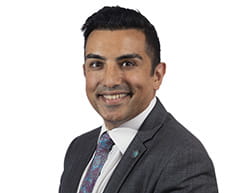Louis Sebastian, Amardeep Gill and Scott Dorling look at the plight of outsourced leisure centres which find themselves at the centre of the Covid 19 storm.
The impact of the Coronavirus Pandemic on public leisure centres has received national attention in the press. The complete lockdown of leisure facilities from March to July 2020, the delayed relaxation of that lockdown and the continuing restrictions on leisure services as they start to open up have had a huge impact on the revenues that are relied upon to provide community leisure centres. To add to an already complex situation, hundreds of leisure centres across the country are operated by private businesses and charitable trusts each with their own contracts and risk-sharing mechanisms in relation to the closures.
This article looks at how contracting authorities are approaching the situation and some of the tactical considerations they need to keep in mind when engaging with their outsourced contractors.
Changing Law and Change In Law
The fundamental challenge to both leisure operators and contracting authorities is how to manage the shortfall in revenues when operating costs remain. The first step has been to mitigate costs as far as possible by closing facilities and furloughing staff. However, mothballing costs still remain and, where centres are starting to reopen with the relaxation of lockdown, reopening costs are not expected to be covered by revenues for some time due to low demand.
There is no obligation at law for contracting authorities to plug the gap in revenue for an outsourced contractor, as Procurement Policy Notes 02/20 and 04/20 confirm. However, the longer term contracts typical in the leisure sector often have sophisticated provisions that allocate the risk (and cost) of certain changes in law to the contracting authority. The closure of leisure centres by the Health Protection (Coronavirus, Restrictions) (England) Regulations 2020/350 is widely accepted (including by the Local Government Association and Sport England) as such a specific change in law.
Each contract is different and needs to be interpreted individually, but where the change in law risk is transferred to the contracting authority it can find itself balancing its many other budgetary pressures against a contractual obligation to make payments under change in law provisions. We have found that working with suppliers (as recommended by PPN 04/20) to identify specific and appropriate commercial solutions is key to fulfilling the contracting authority's duty to obtain value for money for its residents.
In such discussions, authorities need to be aware of all of the negotiation strategies available to them. These include:
- taking the contractor's performance in the three months leading up to lockdown and off-setting any deductions against any agreed settlement;
- asking for evidence on an open-book basis for actual costs incurred and revenue generated (if any) during lockdown and ensuring costs claimed are challenged and revenues are used to reduce support payments;
- keeping the matter continually under review, perhaps by agreeing to provide financial support on a month-by-month basis and requesting reports each month on the continuing impact;
- requiring the production of re-opening plans and financial forecasting to minimise on-going disruption and justify financial payments;
- requiring that contractor profit is given up (as encouraged by PPN 02/20 and 04/20) while services remain offline and requesting evidence of this;
- requiring contractors to make claims under business interruption insurance (if in place) and apply monies received to the contract if claims are successful;
- requiring contractor to make claims for available support (government, industry bodies, etc.); and
- agreeing a cap on monthly support and working towards a fixed date when support will end.
We have seen that the best results have come from where contracting authorities and their leisure operators have worked together to agree the minimum support needed to keep facilities ticking over and documenting this in formal variations or side agreements. This has allowed strong working relationships to be maintained and centres to re-open at the earliest opportunity – providing much needed services to communities and starting the process of returning demand (and revenues) to normal levels. The alternative would be a costly legal battle over contractual interpretation and liabilities which neither provides value for money nor encourages reopening of facilities for residents.
Plan B
While joint working to maintain an outsourced contract will be appropriate for some authorities, the fact remains that others may not be in a position to do so for the long-term. Similarly, private operators may not be able to maintain some contracts with permanent reductions in the expected revenues. We are being asked by clients to look at the possible options for long term solutions, including:
- Re-baselining the financial model of the contract to acknowledge the permanent change to revenues. While likely to be more expensive for authorities, this provides certainty of the long term financial position and can remove further Change in Law risk;
- Insourcing of the services following termination of the contract (there are a number of possible termination routes depending on contractual terms including mutually agreed termination, voluntary termination, termination for insolvency, termination for breach and termination for force majeure);
- Quasi-insourcing of the services by transferring them to a council-owned Teckal company.
There is no one size fits all solution to this situation due to differences in councils' policy priorities, financial capabilities, resources to take back leisure service and contractual positions. Weighing all of these up in dialogue with leisure operators and documenting any agreed solution is, in our view, the most likely way to achieve value for money in addressing this unprecedented situation.
For more on public procurement and the impact of Covid-19, please contact Louis Sebastian, Amardeep Gill or Scott Dorling.

